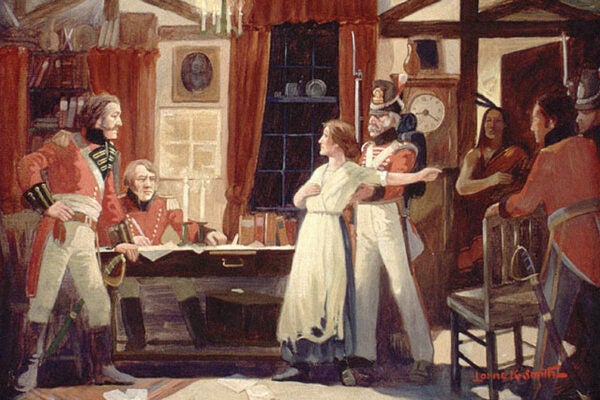On August 4, 1723, the newly appointed bishop of London, Edmund Gibson, received a letter from a group of anonymous enslaved people from the Virginia colony. The letter writers told of the misdeeds of the English colonists, likening their plight to the children of Israel enslaved in Egypt and asking the Anglican Church and King George to “Releese us” from “this Cruell Bondage.” As historian Antonio T. Bly writes, one thing that stands out about the letter is its focus on slaveholders’ failure to make it possible for enslaved people to read the Bible.
In the face of treatment that they described as no better than that given to dogs, Bly writes, the writers put a remarkable focus on demands for religious education. They asked that their children be brought up with “the Lord’s prayer, the creed, and the ten commandments”—and that they be allowed to go to school and read the Bible. They also noted that they had been denied the sacrament of marriage and were not allowed to keep the Sabbath day holy. In fact, they wrote, “we hardly know when it comes.”
Bly writes that it’s notable that enslaved people could write such a letter at all. While it wasn’t uncommon for slaves in the colony to learn to read, it was illegal for them to write. This was directly related to the law forbidding slaves to leave their enslaver’s land without a pass.
“Writing, therefore, stood for the planter’s power and the slave’s confinement,” Bly writes.
The letter-writers were well aware of this. In fact, they explained that they must send the letter anonymously because if they were discovered they would be sent to the gallows.
The writers had reason to believe Bishop Gibson would understand their concerns. Like many Anglican Church leaders, he was a strong supporter of missions to Christianize Native Americans and enslaved Africans through Bible reading. Soon after his appointment, he sent a questionnaire to clergy in North America. Among the questions was “Are there any Infidels, bond or free, within your Parish; and what means are used for their conversion?” Dozens of church leaders in Virginia responded. Most explained that some slaveholders ensured that the enslaved received baptism and Bible instruction, but most failed to do so.
The letter pointed to the dishonest terms on which enslavement was justified. The church insisted—and slaveholders claimed to agree—that those who held people in slavery should behave as Christian patriarchs with material and moral responsibility for the “bond men and bond women” in their care. But, in practice, the stronger pull was a fear that teaching enslaved people to read or instructing them in religion could lead them to become rebellious.
Bly writes that the letter-writers boldly called out enslavers as “insincere stewards who broke both the laws of God and of man.” At the same time, he adds, “in their determination that ‘godliness should abound among us,’ they forged the beginnings of the African American literacy tradition.”







